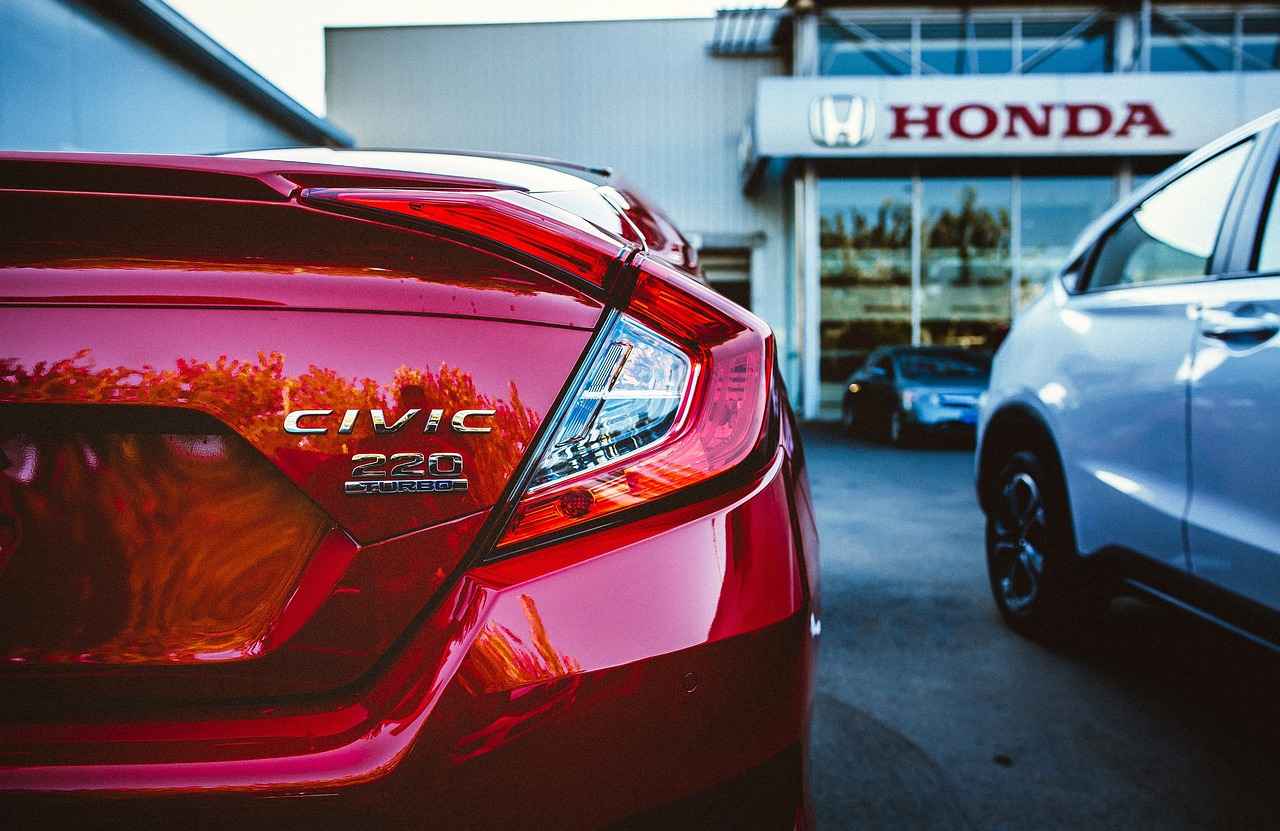The Honda Accord is renowned for its fuel efficiency, making it a popular choice among drivers who prioritize economy without sacrificing performance. In this article, we will delve into the miles per gallon (MPG) ratings of the Honda Accord, the factors influencing fuel economy, and how it compares to other vehicles within its class.
The average MPG for a Honda Accord varies based on the model year and engine type. Generally, recent models achieve impressive ratings, with figures often reaching up to 30 MPG in the city and 38 MPG on the highway. Understanding these averages is crucial for potential buyers aiming to gauge fuel efficiency.
The choice of engine plays a significant role in determining the Accord’s fuel efficiency. The Honda Accord offers both four-cylinder and V6 engine options, each with distinct MPG ratings.
The four-cylinder engine is designed with fuel efficiency in mind, frequently outperforming the V6 in terms of MPG. This engine often yields higher ratings, making it an excellent choice for daily commuting.
While the four-cylinder engine provides adequate power for most driving situations, it maintains a strong balance between performance and fuel economy, appealing to those who drive primarily in urban settings.
Real-world driving conditions can significantly impact fuel efficiency. Based on user-reported data and expert reviews, many drivers report achieving MPG figures that align closely with manufacturer estimates, showcasing the engine’s efficiency.
Although the V6 engine offers enhanced power and acceleration, it typically results in lower MPG ratings compared to the four-cylinder variant. This trade-off is essential for buyers who prioritize performance over fuel efficiency.
The MPG ratings of the Honda Accord have evolved significantly over the years. Below is a breakdown of fuel efficiency by model year:
| Model Year | City MPG | Highway MPG |
|---|---|---|
| 2018 | 30 | 38 |
| 2019 | 30 | 36 |
| 2020 | 30 | 38 |
| 2021 | 29 | 35 |
| 2022 | 29 | 37 |
| 2023 | 30 | 38 |
Recent models have introduced advanced technology aimed at improving fuel efficiency, such as turbocharged engines and enhanced aerodynamics, leading to better overall MPG ratings.
Even older Honda Accord models maintain competitive MPG ratings, often achieving around 26-34 MPG, showcasing Honda’s long-standing commitment to fuel efficiency.
Driving habits significantly influence the actual MPG experienced by drivers. Adopting efficient driving practices can lead to substantial improvements in fuel economy.
- Maintain a steady speed and avoid rapid acceleration.
- Reduce idling time to conserve fuel.
- Keep tires properly inflated to enhance efficiency.
Regular vehicle maintenance is vital for optimizing fuel efficiency. Simple upkeep tasks can help maintain or even improve MPG ratings.
- Regularly check tire pressure.
- Change oil as recommended.
- Replace air filters periodically.
When evaluating fuel efficiency, it’s essential to compare the Honda Accord with its competitors, such as the Toyota Camry and Nissan Altima.
In comparison, the Honda Accord consistently ranks favorably against its peers, often leading in MPG ratings in various categories.
The Honda Accord Hybrid presents an excellent alternative for those seeking superior fuel efficiency, achieving up to 48 MPG in the city.
Comparing hybrid models with traditional gasoline engines highlights significant differences in fuel efficiency, with hybrids often outperforming their gasoline counterparts.
Honda has integrated various technologies to enhance fuel efficiency in the Accord, including features like Eco Assist.
Technologies such as Eco Assist help drivers optimize fuel consumption by providing real-time feedback on driving habits, effectively improving MPG.

What is the Average MPG for a Honda Accord?
The Honda Accord has long been recognized for its impressive fuel efficiency, making it a popular choice among drivers who prioritize miles per gallon (MPG) ratings. Understanding the average MPG for various model years and engine types is essential for potential buyers who want to gauge the vehicle’s fuel economy accurately.
The average MPG for a Honda Accord varies significantly depending on the model year and engine choice. Generally, recent models have improved their fuel efficiency due to advancements in engine technology and aerodynamics. For instance, the latest Honda Accord models (2018-2023) typically achieve an impressive 30-35 MPG combined, depending on the engine configuration.
In contrast, older models, particularly those manufactured between 2010 and 2017, also display competitive MPG ratings, often ranging from 25-30 MPG combined. This range indicates that even older Accords remain viable options for buyers concerned about fuel efficiency.
The choice of engine plays a critical role in determining the MPG of the Honda Accord. The two primary options available are the four-cylinder engine and the V6 engine. Each offers distinct advantages and disadvantages regarding fuel efficiency.
The four-cylinder engine is designed for optimal fuel economy, often yielding higher MPG ratings compared to the V6. This engine typically offers a balance of performance and efficiency, making it ideal for daily commuting.
While the four-cylinder engine provides adequate power for most driving situations, it excels in fuel economy, often achieving up to 35 MPG on the highway. This makes it a favorable choice for those who prioritize cost-effective driving.
Real-world driving conditions can impact actual MPG figures. User-reported data indicates that many drivers experience fuel economy that closely matches or even exceeds the EPA estimates, especially when driving habits are optimized.
On the other hand, the V6 engine offers more power, which can be appealing for those seeking enhanced performance. However, this typically results in lower MPG, averaging around 20-25 MPG combined.
Honda Accord MPG ratings have evolved over the years, reflecting changes in technology and consumer preferences. Below is a breakdown of fuel efficiency by model year:
- Recent Models (2018-2023): 30-35 MPG combined
- Older Models (2010-2017): 25-30 MPG combined
Driving habits significantly influence the actual MPG experienced by drivers. Factors such as acceleration, speed, and braking can dramatically affect fuel consumption.
- Maintain a steady speed
- Avoid rapid acceleration and hard braking
- Use cruise control on highways
Regular maintenance is crucial for optimizing the fuel efficiency of any vehicle, including the Honda Accord. Key maintenance practices include:
- Regularly check tire pressure
- Change oil as recommended
- Replace air filters periodically
By following these maintenance tips, drivers can help ensure that their Honda Accord operates at peak efficiency, maximizing fuel economy.
When considering fuel efficiency, it’s essential to compare the Honda Accord with other vehicles in its class. Competitors like the Toyota Camry and Nissan Altima offer similar MPG ratings, but the Accord often edges them out due to its superior technology and engineering.
In a head-to-head comparison, the Honda Accord consistently demonstrates better fuel economy than many of its rivals, making it a top choice for fuel-conscious drivers.
The Honda Accord Hybrid offers an alternative for those seeking even better fuel efficiency. This model typically achieves an impressive 48 MPG combined, making it an attractive option for eco-conscious consumers.
Comparing hybrid and traditional gasoline engines reveals significant differences in fuel efficiency. The hybrid model not only provides excellent MPG but also contributes to reduced emissions, appealing to environmentally aware drivers.
Honda has integrated various technologies into the Accord to enhance fuel efficiency. Features like Eco Assist help drivers optimize fuel consumption, making it easier to achieve desired MPG ratings.
This technology provides real-time feedback on driving habits, encouraging practices that lead to better fuel economy. By utilizing these features, drivers can maximize their Honda Accord’s fuel efficiency.

How Does Engine Type Affect MPG?
The choice of engine in the Honda Accord plays a crucial role in determining its fuel efficiency. Understanding how different engine types influence miles per gallon (MPG) can help potential buyers make informed decisions based on their driving needs and preferences.
The Honda Accord is available with a variety of engine options, primarily a four-cylinder engine and a V6 engine. Each of these engines offers distinct advantages and disadvantages that directly impact fuel efficiency. In this section, we will explore how these two engine types compare in terms of MPG ratings, performance, and overall driving experience.
The four-cylinder engine in the Honda Accord is engineered for maximum fuel efficiency. Typically, this engine configuration provides better MPG ratings compared to the V6. For instance, the 2022 Honda Accord with a four-cylinder engine can achieve up to 30 MPG in the city and 38 MPG on the highway. These figures make it an excellent choice for those who prioritize fuel economy, especially for daily commuting.
While the four-cylinder engine is designed for fuel efficiency, it does not compromise on performance. This engine offers a balanced driving experience, providing adequate power for city driving and highway merging. Many drivers find that the four-cylinder engine meets their needs without the additional fuel costs associated with more powerful engines.
Real-world driving conditions can significantly affect MPG. According to user-reported data and expert reviews, drivers of the four-cylinder Accord often report achieving MPG figures that align closely with the EPA estimates. Factors such as driving style, traffic conditions, and maintenance practices can influence these numbers, but the four-cylinder remains the more efficient choice overall.
On the other hand, the V6 engine offers enhanced power and acceleration, making it appealing for those who value performance over fuel efficiency. However, this comes at a cost, as V6 models typically yield lower MPG ratings. For instance, a V6-equipped Accord might achieve around 22 MPG in the city and 32 MPG on the highway. This trade-off between power and efficiency is crucial for buyers to consider.
Choosing between a four-cylinder and a V6 engine involves weighing the benefits of fuel economy against the desire for power. The four-cylinder engine is ideal for drivers who prioritize cost-effective fuel consumption, while the V6 engine caters to those who seek a more robust driving experience.
Honda has integrated various technologies into both engine types to enhance fuel efficiency. Features such as variable valve timing and direct fuel injection help optimize performance and reduce fuel consumption. Understanding these technologies can provide further insights into how each engine achieves its MPG ratings.
Ultimately, the decision between a four-cylinder and a V6 engine in the Honda Accord should be based on individual driving habits and preferences. If you primarily drive in urban environments and value fuel efficiency, the four-cylinder engine is likely the better option. Conversely, if you often embark on long road trips or require additional power for towing, the V6 may be more suitable.
In conclusion, understanding how engine type affects MPG is essential for prospective Honda Accord buyers. By evaluating the differences between the four-cylinder and V6 engines, drivers can make more informed choices that align with their lifestyle and fuel efficiency goals.
Four-Cylinder Engine Efficiency
The Honda Accord has long been recognized for its exceptional balance of performance and fuel efficiency. Among its engine options, the four-cylinder engine stands out as a champion of fuel economy, making it a popular choice for many drivers. This section delves into the efficiency of the four-cylinder engine, discussing its design, performance, and advantages over the V6 variant.
The four-cylinder engine in the Honda Accord is engineered to maximize fuel efficiency. By employing advanced technologies such as variable valve timing and direct fuel injection, this engine optimizes combustion, which leads to higher miles per gallon (MPG) ratings. Typically, the four-cylinder engine achieves an impressive MPG rating, often surpassing that of its V6 counterpart.
While some may perceive a four-cylinder engine as less powerful compared to a V6, the reality is that modern four-cylinder engines offer a remarkable blend of performance and fuel economy. The Honda Accord’s four-cylinder engine provides sufficient power for daily driving needs, making it an ideal choice for commuters. This engine’s design focuses on lightweight materials and efficient airflow, allowing it to deliver a satisfying driving experience without compromising on fuel efficiency.
In real-world driving conditions, the MPG ratings of the four-cylinder Honda Accord can vary based on factors such as driving habits and terrain. However, many drivers report achieving MPG figures that align closely with the manufacturer’s estimates. For instance, users often share experiences of reaching around 30-35 MPG on highways, showcasing the engine’s efficiency during long drives.
Honda has integrated several features into the Accord to enhance the fuel efficiency of its four-cylinder engine. One notable technology is the Eco Assist system, which provides real-time feedback to drivers on how their driving habits impact fuel consumption. By encouraging smoother acceleration and deceleration, this feature helps drivers maximize their MPG.
When compared to the V6 engine, the four-cylinder version consistently demonstrates superior fuel economy. While the V6 offers additional power for those who prioritize performance, the trade-off is often a noticeable decrease in MPG. This makes the four-cylinder engine particularly appealing for drivers who seek a practical and economical choice.
To maintain the optimal fuel efficiency of the four-cylinder engine, regular maintenance is crucial. Simple practices such as keeping tires properly inflated, changing the oil at recommended intervals, and replacing air filters can significantly enhance MPG. Drivers who adhere to these maintenance tips often find that their four-cylinder Accord performs at its best, both in terms of power and fuel economy.
In summary, the four-cylinder engine in the Honda Accord is a testament to modern engineering, providing drivers with an exceptional fuel-efficient option without sacrificing performance. With its advanced technologies, real-world MPG estimates, and commitment to maintenance, the four-cylinder engine continues to be a top choice for those prioritizing fuel economy.
Performance and Fuel Economy
The four-cylinder engine has become a popular choice among drivers seeking a balance between performance and fuel economy. This section delves into how this engine type excels in providing an efficient driving experience, particularly for daily commutes.
When it comes to daily driving, the four-cylinder engine stands out for its ability to deliver adequate power while maintaining impressive fuel efficiency. This balance is crucial for those who prioritize cost-effective driving without sacrificing performance.
- Responsive Acceleration: Four-cylinder engines are designed for quick responsiveness, making them suitable for city driving.
- Lightweight Design: The lighter weight of four-cylinder engines contributes to better handling and maneuverability.
- Lower Emissions: These engines typically produce fewer emissions, aligning with eco-friendly driving practices.
One of the standout features of the four-cylinder engine is its fuel efficiency. Many models achieve upwards of 30 miles per gallon (MPG) in combined city and highway driving. This efficiency is particularly beneficial for those who spend a significant amount of time on the road.
In real-world conditions, drivers often report that their four-cylinder Honda Accords yield consistent MPG figures close to the manufacturer’s estimates. Factors such as driving style, load, and maintenance can influence these numbers, but overall, the four-cylinder engine maintains its reputation for reliability and efficiency.
Choosing a four-cylinder engine can also lead to lower operating costs. With better fuel economy, drivers can expect to spend less on fuel over time. Additionally, the maintenance costs for four-cylinder engines are often lower than those for larger engines, making them a sound financial choice.
When compared to V6 engines, four-cylinder options typically offer a better balance of performance and fuel economy. While V6 engines provide more power, they often come at the expense of lower MPG ratings. For most daily drivers, the four-cylinder engine’s efficiency outweighs the need for additional horsepower.
In summary, the four-cylinder engine offers an excellent combination of performance and fuel economy, making it an ideal choice for daily driving. With its responsive acceleration, lower emissions, and cost-effectiveness, it caters to the needs of modern drivers who prioritize efficiency without compromising on performance.
Real-World MPG Estimates
The fuel efficiency of vehicles, particularly the Honda Accord, is a topic of great interest among potential buyers and current owners alike. While manufacturers provide official miles per gallon (MPG) ratings, real-world driving conditions can lead to significant variations in these figures. This section delves into the for the Honda Accord, drawing insights from user-reported data and expert reviews.
Understanding how driving conditions impact fuel efficiency is crucial for anyone looking to maximize their vehicle’s performance. Factors such as traffic patterns, road conditions, and climate can all contribute to discrepancies between laboratory-tested MPG ratings and actual fuel consumption. For instance, stop-and-go traffic often results in lower MPG compared to highway driving, where steady speeds can enhance fuel efficiency.
- Driving Habits: Aggressive acceleration and frequent braking can drastically reduce MPG. Drivers who adopt a smoother driving style often report better fuel economy.
- Weather Conditions: Cold weather can lead to lower fuel efficiency due to increased engine load and the use of heating systems. Similarly, using air conditioning in hot weather can also impact MPG.
- Vehicle Load: Carrying extra weight in the vehicle can negatively affect fuel efficiency. The more weight a vehicle has to move, the more fuel it consumes.
- Tire Maintenance: Properly inflated tires are essential for optimal fuel economy. Under-inflated tires can increase rolling resistance, leading to higher fuel consumption.
Many Honda Accord owners have shared their experiences regarding real-world MPG. According to user reports, the four-cylinder models typically achieve between 28 to 35 MPG under mixed driving conditions. In contrast, the V6 models tend to hover around 20 to 30 MPG. These variations highlight the importance of considering engine type when evaluating fuel efficiency.
Moreover, forums and online communities dedicated to Honda Accord enthusiasts often discuss personal MPG achievements. Some users have reported reaching MPG figures that exceed official ratings, especially when employing fuel-saving techniques and maintaining their vehicles meticulously.
Expert reviews also provide valuable insights into the real-world MPG of the Honda Accord. Automotive journalists and reviewers often conduct comprehensive tests that replicate everyday driving conditions. These tests yield MPG results that reflect what average drivers can expect.
For example, a recent review conducted by an automotive magazine reported that a 2022 Honda Accord with a four-cylinder engine achieved an impressive 32 MPG during a week-long test that included city and highway driving. Such findings reinforce the idea that while official ratings are helpful, real-world performance can vary significantly based on driving conditions and habits.
In conclusion, understanding the factors that influence real-world MPG is essential for Honda Accord owners. By adopting efficient driving habits, maintaining their vehicles, and being aware of external conditions, drivers can optimize their fuel economy. Whether you own a four-cylinder or V6 model, being proactive about your driving practices can lead to better MPG outcomes and ultimately save money at the pump.
V6 Engine Performance
The V6 engine has long been a popular choice among car enthusiasts and everyday drivers alike. Known for its ability to deliver enhanced power and performance, the V6 engine often finds itself in vehicles that prioritize both speed and torque. However, this power comes with a trade-off: typically, V6 engines result in lower miles per gallon (MPG) compared to their four-cylinder counterparts. In this section, we will explore how this trade-off affects overall fuel efficiency and the implications for drivers.
- Increased Power: V6 engines are designed to provide more horsepower, which translates to quicker acceleration and better performance on highways.
- Smoother Operation: With more cylinders, V6 engines generally run more smoothly, reducing vibrations and enhancing driving comfort.
- Versatility: V6 engines are often found in a range of vehicles, from sedans to SUVs, making them a versatile choice for various driving needs.
While V6 engines excel in power, they often consume more fuel, leading to lower MPG ratings. For instance, a typical V6 engine might achieve around 20-25 MPG in city driving, whereas a four-cylinder engine can often reach 25-30 MPG or more. This difference is significant for drivers who prioritize fuel economy, especially for daily commuting.
- Displacement: V6 engines usually have a larger displacement than four-cylinder engines, meaning they require more fuel to operate.
- Weight: Vehicles equipped with V6 engines are often heavier, which can affect fuel efficiency negatively.
- Driving Conditions: V6 engines may consume more fuel in stop-and-go traffic compared to four-cylinder engines, which are designed for efficiency.
Many modern V6 engines incorporate advanced technologies aimed at improving fuel efficiency. Features such as direct fuel injection, variable valve timing, and turbocharging can help enhance performance while mitigating fuel consumption. These innovations have allowed manufacturers to design V6 engines that are more efficient than ever before, narrowing the MPG gap between V6 and four-cylinder engines.
For drivers considering a vehicle with a V6 engine, it’s essential to weigh the benefits of increased power against the potential for lower fuel economy. While the thrill of driving a more powerful vehicle is undeniable, the added fuel costs can accumulate over time, particularly for those who drive long distances regularly. Understanding these trade-offs can help consumers make informed decisions based on their driving habits and priorities.
In summary, the V6 engine offers a compelling mix of performance and power, but it typically results in lower MPG compared to four-cylinder engines. By being aware of the factors that influence fuel efficiency and the technologies available to improve it, drivers can better navigate their choices in the automotive market.

What Are the MPG Ratings by Model Year?
The Honda Accord has long been recognized for its reliability and fuel efficiency. Over the years, its miles per gallon (MPG) ratings have evolved significantly, reflecting advancements in technology and changes in consumer demands. Understanding the MPG ratings by model year can help potential buyers make informed decisions. Below, we provide a detailed breakdown of the fuel efficiency of the Honda Accord across various model years.
The MPG ratings of the Honda Accord have varied considerably from year to year. This section highlights the fuel efficiency trends observed in different model years, helping readers to identify how the vehicle has adapted over time.
The latest models of the Honda Accord, particularly from 2018 to 2023, showcase impressive fuel efficiency due to the incorporation of advanced technologies. Here are some key MPG ratings for these years:
- 2018 Honda Accord: Achieves up to 30 city / 38 highway MPG with its turbocharged four-cylinder engine.
- 2019 Honda Accord: Maintains similar ratings, emphasizing the balance between performance and fuel economy.
- 2020 Honda Accord: Introduces hybrid options, achieving up to 48 city / 47 highway MPG.
- 2021 Honda Accord: Continues the trend with slight enhancements in fuel efficiency, particularly in hybrid models.
- 2022 Honda Accord: Further optimizes fuel consumption, reaching up to 29 city / 35 highway MPG for gasoline variants.
- 2023 Honda Accord: Expected to offer cutting-edge technology, enhancing overall MPG ratings.
While the recent models shine in terms of fuel efficiency, older Honda Accord models also present competitive MPG ratings. Below is a summary of average MPG ratings for these years:
- 2010 Honda Accord: Achieved 21 city / 31 highway MPG.
- 2011 Honda Accord: Slight improvements with 23 city / 34 highway MPG.
- 2012 Honda Accord: Maintained similar efficiency ratings, emphasizing reliability.
- 2013 Honda Accord: Introduced a more fuel-efficient four-cylinder engine, reaching 27 city / 36 highway MPG.
- 2014 Honda Accord: Continued improvements, with some models achieving up to 25 city / 36 highway MPG.
- 2015-2017 Honda Accord: These years saw consistent MPG ratings, with the hybrid model reaching up to 50 city / 45 highway MPG.
The evolution of the Honda Accord’s MPG ratings reflects the brand’s commitment to enhancing fuel efficiency while maintaining performance. As technology advances, newer models are designed to meet the growing demand for environmentally friendly vehicles, ensuring that the Accord remains a strong contender in the midsize sedan market.
In conclusion, understanding the MPG ratings by model year provides valuable insights for potential buyers. Whether considering a recent model with advanced hybrid technology or an older version known for its reliability, the Honda Accord offers a range of options to suit various preferences and driving needs.
Recent Model Years (2018-2023)
The Honda Accord has long been synonymous with reliability and efficiency, and recent models from 2018 to 2023 have taken these attributes to new heights. With advancements in engineering and technology, the latest Honda Accord models have made significant strides in fuel efficiency, making them a top choice for eco-conscious drivers.
In the latest iterations, the Honda Accord boasts impressive miles per gallon (MPG) ratings that cater to various driving needs. Here’s a breakdown of the MPG ratings by model year:
| Model Year | Engine Type | City MPG | Highway MPG | Combined MPG |
|---|---|---|---|---|
| 2018 | 2.4L I4 | 26 | 34 | 29 |
| 2019 | 2.0L I4 | 22 | 32 | 26 |
| 2020 | 1.5L I4 Turbo | 30 | 38 | 33 |
| 2021 | 2.0L I4 Turbo | 29 | 35 | 32 |
| 2022 | 2.0L I4 | 29 | 37 | 32 |
| 2023 | 2.0L I4 Hybrid | 48 | 47 | 48 |
Recent Honda Accord models incorporate several advanced technologies aimed at enhancing fuel efficiency. One notable feature is the continuously variable transmission (CVT), which optimizes engine performance by adjusting the gear ratio seamlessly. This technology allows for better acceleration and improved fuel economy.
Additionally, the inclusion of Eco Assist technology helps drivers maximize their MPG by providing real-time feedback on driving habits. This feature encourages more efficient driving styles, contributing to overall fuel savings.
The Honda Accord offers a variety of engine options, including a 1.5L turbocharged four-cylinder and a 2.0L turbocharged engine. The four-cylinder engine, in particular, is designed for optimal fuel efficiency, achieving higher MPG ratings compared to the more powerful V6 engine.
For those seeking even better fuel economy, the Honda Accord Hybrid is a standout option, delivering an impressive 48 MPG combined. This hybrid model utilizes a combination of electric and gasoline power to achieve superior efficiency, making it an excellent choice for environmentally conscious drivers.
While manufacturers provide estimated MPG ratings, real-world driving conditions can significantly impact fuel efficiency. Factors such as traffic patterns, weather conditions, and driving habits can all lead to variations in actual MPG experienced by drivers.
To get a more accurate understanding of fuel economy, many drivers turn to user-reported data and expert reviews, which often reflect the practical experiences of Accord owners in various driving environments.
In summary, the recent Honda Accord models from 2018 to 2023 showcase remarkable advancements in fuel efficiency, driven by innovative technologies and diverse engine options. Whether opting for a traditional gasoline engine or the hybrid variant, drivers can expect impressive MPG ratings that align with modern eco-friendly standards.
Older Models (2010-2017)
The Honda Accord has long been a popular choice among drivers seeking a reliable and fuel-efficient vehicle. When examining the older models from 2010 to 2017, it becomes evident that these vehicles also boast competitive miles per gallon (MPG) ratings, making them a viable option for budget-conscious consumers.
Older Honda Accord models, particularly those manufactured between 2010 and 2017, achieved impressive MPG ratings. Depending on the engine type and year, the MPG ratings for these models typically ranged from 26 to 34 MPG on the highway. For example:
| Model Year | Engine Type | City MPG | Highway MPG |
|---|---|---|---|
| 2010 | 4-Cylinder | 21 | 31 |
| 2012 | V6 | 20 | 30 |
| 2015 | 4-Cylinder | 27 | 37 |
| 2017 | Hybrid | 49 | 47 |
When comparing these older models to newer Honda Accord iterations, the advancements in technology and engineering become apparent. Newer models, particularly those produced after 2018, have embraced hybrid technology and improved aerodynamics, which have enhanced fuel efficiency. However, many drivers find that the older models still provide a satisfactory balance of performance and fuel economy.
During the years 2010 to 2017, Honda implemented several key technologies aimed at improving fuel efficiency. Some of these include:
- Variable Cylinder Management (VCM): This technology allows the engine to deactivate some cylinders under light-load conditions, enhancing fuel economy.
- Eco Assist System: This feature helps drivers adopt more efficient driving habits by providing real-time feedback on their driving performance.
- Advanced Transmission Systems: The introduction of continuously variable transmissions (CVTs) in later models improved the overall efficiency by optimizing engine performance.
While older Honda Accord models offer competitive MPG ratings, there are some trade-offs to consider. For instance, the V6 engines provide more power but typically result in lower fuel efficiency compared to the four-cylinder options. Additionally, the lack of some modern safety and infotainment features found in newer models may be a drawback for some buyers.
Potential buyers should evaluate their driving needs and preferences. If fuel efficiency is a top priority, the four-cylinder models from this era are likely to be more economical. Conversely, if power and performance are more critical, the V6 options may be appealing despite their slightly lower MPG ratings. Furthermore, conducting a thorough inspection and reviewing maintenance history is crucial to ensure the vehicle’s longevity and reliability.
In summary, older Honda Accord models from 2010 to 2017 remain a strong contender in the used car market, offering competitive MPG ratings and a good balance of performance and efficiency. With careful consideration and research, buyers can find a model that suits their needs while enjoying the benefits of Honda’s engineering excellence.

How Does Driving Style Impact Fuel Economy?
Driving style is a significant factor influencing the fuel economy of any vehicle, including the Honda Accord. By adopting smarter driving habits, drivers can enhance their miles per gallon (MPG) and reduce fuel costs. This section delves into various driving techniques that can lead to improved fuel efficiency.
Many drivers are unaware that their daily driving habits can greatly affect their vehicle’s fuel consumption. Below are some key techniques that can help maximize fuel efficiency:
- Gentle Acceleration and Braking: Rapid acceleration and sudden braking can consume more fuel. By accelerating smoothly and anticipating stops, drivers can maintain a steady speed, which is more fuel-efficient.
- Maintaining a Steady Speed: Using cruise control on highways helps maintain a constant speed, reducing fuel consumption. This practice is particularly effective during long drives.
- Observing Speed Limits: Driving at or below the speed limit not only enhances safety but also improves fuel economy. Higher speeds can lead to increased air resistance and lower MPG.
- Reducing Idling: Idling consumes fuel without moving the vehicle. Turning off the engine when parked or waiting can save fuel and reduce emissions.
The weight of the vehicle can significantly impact fuel efficiency. Carrying unnecessary cargo can increase fuel consumption. Here are some tips regarding load management:
- Avoid Excess Weight: Remove any items from the trunk or back seat that are not needed for daily driving. Every extra pound can reduce MPG.
- Roof Racks and Carriers: If not in use, remove roof racks or carriers, as they create additional drag, reducing fuel efficiency.
Proper tire maintenance is crucial for optimal fuel efficiency. Under-inflated tires can lead to increased rolling resistance, causing the engine to work harder and consume more fuel. Here are some maintenance tips:
- Regular Tire Pressure Checks: Ensure that tires are inflated to the manufacturer’s recommended pressure. This can improve fuel economy by up to 3%.
- Proper Alignment: Misaligned wheels can cause uneven tire wear and increased fuel consumption. Regular alignment checks can help maintain efficiency.
Using climate control systems in your vehicle can also impact fuel efficiency. Here’s how:
- Use Air Conditioning Wisely: The air conditioning system can decrease fuel efficiency. Use it sparingly and consider using the vehicle’s ventilation system instead.
- Windows and Airflow: At lower speeds, it’s more fuel-efficient to drive with the windows down. However, at higher speeds, open windows can create drag, making air conditioning a better option.
Absolutely! Changing driving habits may require some effort, but the benefits can be significant. By being mindful of driving techniques, load management, tire maintenance, and climate control usage, drivers can see noticeable improvements in their fuel economy.
In summary, adjusting driving style and habits can lead to enhanced fuel efficiency for the Honda Accord and other vehicles. Implementing these tips not only saves money on fuel but also contributes to a greener environment.
Tips for Efficient Driving
Maximizing fuel efficiency is not just about the vehicle you drive; it also heavily relies on your driving habits. By adopting specific driving techniques, you can significantly enhance your vehicle’s miles per gallon (MPG) performance. Here are some practical tips for efficient driving that can lead to better fuel economy:
- Maintain Steady Speeds: Keeping a consistent speed is crucial for optimizing fuel efficiency. Frequent acceleration and deceleration can consume more fuel. Use cruise control on highways to maintain a steady speed.
- Avoid Rapid Acceleration: Aggressive driving, such as rapid starts and hard braking, can decrease your MPG by up to 30% in highway conditions. Smooth and gradual acceleration is key.
- Reduce Idling Time: If you anticipate being stopped for more than a minute, it’s more fuel-efficient to turn off your engine. Idling consumes fuel without any benefit.
- Plan Your Trips: Combining errands into one trip can reduce the total driving time and distance, improving fuel efficiency. This minimizes the time your engine spends warming up.
- Optimize Your Route: Use GPS or apps to find the most efficient routes. Avoid routes with heavy traffic or frequent stoplights.
- Lighten Your Load: Remove unnecessary items from your vehicle. Carrying extra weight can decrease fuel economy. For every 100 pounds you carry, your MPG can drop by about 1%.
- Check Tire Pressure: Under-inflated tires can increase rolling resistance, which can lead to reduced fuel efficiency. Regularly check and maintain your tire pressure to the manufacturer’s recommended levels.
- Use Air Conditioning Wisely: Air conditioning can increase fuel consumption. Use it sparingly, and consider using the vehicle’s ventilation system instead when driving at lower speeds.
- Limit Use of Roof Racks: If not in use, remove roof racks or carriers. They create drag, which can reduce fuel efficiency, especially at highway speeds.
- Keep Up with Maintenance: Regular maintenance, such as oil changes and air filter replacements, ensures your vehicle runs efficiently. A well-maintained engine operates better and consumes less fuel.
By implementing these efficient driving techniques, you can not only improve your MPG but also contribute to a more sustainable environment. Every small change in your driving habits can lead to significant savings at the pump over time.

What Role Does Maintenance Play in MPG?
When it comes to maximizing the fuel efficiency of your vehicle, regular maintenance plays an indispensable role. This is especially true for popular models like the Honda Accord, where a few simple maintenance practices can significantly enhance miles per gallon (MPG) performance. Understanding how maintenance impacts fuel efficiency is crucial for every Accord owner.
Regular maintenance ensures that your Honda Accord operates at its best. Over time, various components can wear down or become less efficient, leading to decreased fuel economy. By adhering to a consistent maintenance schedule, you can prevent issues that might negatively impact your vehicle’s performance.
- Tire Pressure Checks: Maintaining the correct tire pressure is vital. Under-inflated tires can increase rolling resistance, causing your engine to work harder and consume more fuel. Regularly check tire pressure and ensure they are inflated to the manufacturer’s recommended levels.
- Oil Changes: Fresh engine oil reduces friction and helps the engine run smoothly. Regular oil changes not only extend engine life but also improve fuel efficiency. Using the right type of oil, as specified in the owner’s manual, can further enhance MPG.
- Air Filter Replacement: A clean air filter allows for better airflow to the engine, improving combustion and efficiency. Clogged filters can reduce engine performance and fuel economy, so replacing them at recommended intervals is essential.
- Fuel System Cleaning: Over time, deposits can build up in the fuel system, affecting engine performance. Regular cleaning can help maintain optimal fuel flow and combustion efficiency, leading to better MPG.
- Regular Inspections: Routine inspections of the vehicle’s systems, including brakes, transmission, and exhaust, can identify potential issues before they become costly repairs. Ensuring these systems are in good working order helps maintain overall vehicle efficiency.
It’s essential to follow the maintenance schedule outlined in your Honda Accord’s owner manual. Generally, key maintenance tasks should be performed every 5,000 to 7,500 miles, though this can vary based on driving conditions and habits. Monitoring your vehicle’s performance and addressing any unusual sounds or behaviors promptly can also help maintain fuel efficiency.
While maintenance is crucial, driving habits also significantly affect fuel efficiency. Aggressive driving, such as rapid acceleration and hard braking, can lead to increased wear and tear on your vehicle, necessitating more frequent maintenance. Adopting smoother driving techniques can not only enhance MPG but also extend the lifespan of your vehicle.
In summary, regular maintenance is essential for optimizing the fuel efficiency of your Honda Accord. By following a consistent maintenance schedule and adopting good driving habits, you can ensure that your vehicle remains efficient and reliable. Investing time and effort into maintaining your Accord will pay off in the long run, both in terms of fuel savings and overall vehicle performance.
Essential Maintenance Tips
Maintaining your Honda Accord is crucial for ensuring optimal fuel efficiency and overall vehicle performance. Regular maintenance not only extends the lifespan of your car but also enhances its fuel economy. Here are some essential maintenance tips that every Honda Accord owner should consider:
- Tire Pressure Checks: Regularly checking your tire pressure is vital. Under-inflated tires can increase rolling resistance, leading to decreased fuel efficiency. Aim to check your tire pressure at least once a month and before long trips. The correct pressure is usually found in the owner’s manual or on a sticker inside the driver’s door.
- Oil Changes: Regular oil changes are essential for keeping your engine running smoothly. Dirty or low oil can cause increased friction and wear, which can negatively affect fuel economy. It’s generally recommended to change the oil every 5,000 to 7,500 miles, depending on your driving habits and oil type.
- Air Filter Replacements: A clean air filter is crucial for optimal engine performance. A clogged air filter can restrict airflow to the engine, causing it to work harder and consume more fuel. Check your air filter every 15,000 miles and replace it if it’s dirty.
- Fuel System Maintenance: Keeping your fuel system clean can improve fuel efficiency. Consider using fuel injector cleaners regularly to prevent buildup that can hinder performance. Additionally, using high-quality fuel can also contribute to better fuel economy.
- Regular Inspections: Schedule routine inspections with a certified mechanic. They can identify potential issues before they become major problems, ensuring that your vehicle remains in top shape. This includes checking the brakes, transmission fluid, and other vital components that can impact fuel efficiency.
- Battery Health: A healthy battery ensures that all electrical components function efficiently. A weak battery can lead to increased fuel consumption, as the engine may have to work harder to power electrical systems. Regularly check your battery’s condition and replace it as needed.
- Wheel Alignment and Balancing: Misaligned wheels can cause uneven tire wear and increased rolling resistance, leading to poor fuel economy. Have your wheel alignment checked regularly, especially if you notice your vehicle pulling to one side or if you’ve hit a significant pothole.
By adhering to these essential maintenance tips, Honda Accord owners can significantly improve their vehicle’s fuel economy and performance. Regular checks and timely replacements will not only save money at the pump but also contribute to a smoother and more reliable driving experience.

How Does the Honda Accord Compare to Competitors?
When it comes to fuel efficiency, the Honda Accord stands out in its class. However, understanding how it compares to its competitors is essential for potential buyers. This section delves into the fuel economy of the Accord relative to similar vehicles, providing a comprehensive look at its performance.
The Honda Accord has long been recognized for its fuel efficiency, but how does it measure up against other popular sedans like the Toyota Camry and Nissan Altima? This comparison will highlight the MPG ratings, engine options, and overall driving experience of these vehicles.
| Vehicle Model | City MPG | Highway MPG | Combined MPG |
|---|---|---|---|
| Honda Accord | 30 | 38 | 33 |
| Toyota Camry | 28 | 39 | 32 |
| Nissan Altima | 28 | 39 | 32 |
As illustrated in the table above, the Honda Accord boasts a competitive edge with a combined MPG rating of 33, making it a frontrunner in the midsize sedan category. While the Toyota Camry and Nissan Altima offer similar highway efficiency, the Accord’s city MPG is notably higher, which can make a significant difference for urban drivers.
Another critical factor in fuel efficiency is the choice of engine. The Honda Accord offers both a four-cylinder engine and a V6 engine. The four-cylinder engine is designed for optimal fuel efficiency, often achieving better MPG ratings than the V6. In contrast, while the V6 engine provides more power, it typically results in lower fuel economy.
Fuel efficiency can vary based on driving conditions and habits. For instance, stop-and-go traffic can lower MPG ratings significantly. The Honda Accord performs well in various conditions, but maintaining optimal tire pressure and regular maintenance can further enhance its efficiency.
The Honda Accord is equipped with advanced fuel economy technologies that enhance its performance. Features such as Eco Assist help drivers maximize fuel consumption by providing real-time feedback on driving habits. This technology encourages smoother acceleration and braking, which can lead to improved MPG.
Consumer reviews often highlight the real-world fuel efficiency of the Honda Accord. Many drivers report achieving MPG figures that exceed the EPA estimates, especially when employing fuel-saving techniques. This positive feedback reinforces the Accord’s reputation as a reliable and efficient vehicle.
In summary, the Honda Accord not only competes effectively with its peers in terms of fuel efficiency, but it also offers advanced technology and engine options that cater to different driving preferences. By comparing these factors, potential buyers can make informed decisions that align with their needs and lifestyle.
Comparative MPG Analysis
The Honda Accord has long been a popular choice among midsize sedans, known for its blend of performance, comfort, and fuel efficiency. In this section, we will delve into a detailed comparison of the MPG ratings of the Honda Accord against its primary competitors, namely the Toyota Camry and Nissan Altima. Understanding these differences can help consumers make informed decisions when choosing their next vehicle.
When evaluating fuel efficiency, it’s essential to look at the miles per gallon (MPG) ratings for each vehicle. Below is a summary of the typical MPG ratings for the latest models of each vehicle:
| Model | City MPG | Highway MPG | Combined MPG |
|---|---|---|---|
| Honda Accord | 30 | 38 | 33 |
| Toyota Camry | 28 | 39 | 32 |
| Nissan Altima | 28 | 39 | 32 |
As indicated in the table, the Honda Accord boasts a competitive MPG rating, particularly in highway driving, where it achieves an impressive 38 MPG. This rating is comparable to the Toyota Camry and Nissan Altima, both of which also perform well on the highway.
Several factors contribute to the differences in MPG ratings among these vehicles:
- Engine Type: The Honda Accord offers both a four-cylinder engine and a hybrid option, which can significantly enhance fuel efficiency.
- Weight: The overall weight of the vehicle can affect fuel economy. The Accord is designed to balance weight and performance.
- Driving Conditions: City driving typically yields lower MPG than highway driving due to stop-and-go traffic.
Technological advancements also play a vital role in the MPG ratings of these vehicles. The Honda Accord incorporates features like Eco Assist, which helps drivers maximize fuel efficiency by providing real-time feedback on driving habits. Similarly, the Toyota Camry utilizes its own suite of fuel-saving technologies that contribute to its overall efficiency.
While official MPG ratings provide a baseline, real-world experiences can vary significantly. Many Accord owners report achieving MPG figures that exceed the official ratings, particularly when driving on highways. This trend is echoed among Camry and Altima owners, highlighting the importance of driving style and maintenance in achieving optimal fuel efficiency.
In summary, the Honda Accord holds its own against the Toyota Camry and Nissan Altima in terms of fuel efficiency. With competitive MPG ratings and advanced technologies designed to enhance fuel economy, it remains a strong contender in the midsize sedan market.

What Are Hybrid Options for Better MPG?
The quest for better fuel efficiency has led many drivers to explore hybrid options, and the Honda Accord Hybrid stands out as a compelling choice. With its combination of advanced technology and eco-friendly design, this vehicle offers a significant alternative for those prioritizing superior fuel economy. In this section, we will delve into the MPG ratings of the Honda Accord Hybrid and examine the various benefits it provides.
The Honda Accord Hybrid boasts impressive fuel efficiency ratings, often achieving up to 48 MPG in the city and 47 MPG on the highway. These figures can vary slightly depending on the model year and driving conditions, but they consistently place the Accord Hybrid among the leaders in its class. This exceptional fuel economy not only reduces the frequency of trips to the gas station but also contributes to lower overall fuel costs.
When comparing the Accord Hybrid to its traditional gasoline counterpart, the differences in fuel efficiency are striking. While the standard Honda Accord typically achieves around 30 MPG combined, the hybrid model significantly outperforms it. This difference highlights the advantages of hybrid technology, which combines a gasoline engine with an electric motor to enhance fuel efficiency.
- Environmental Impact: The hybrid model produces fewer emissions, making it a more environmentally friendly option.
- Cost Savings: With higher MPG ratings, drivers can save significantly on fuel costs over time.
- Tax Incentives: Many regions offer tax credits or incentives for hybrid vehicle owners, further enhancing the financial appeal.
- Advanced Technology: The Honda Accord Hybrid comes equipped with features such as regenerative braking, which helps recharge the battery while driving.
Driving habits play a crucial role in determining the actual MPG experienced by drivers of the Honda Accord Hybrid. Gentle acceleration and maintaining a steady speed can maximize fuel efficiency, while aggressive driving can significantly reduce MPG. Adopting eco-friendly driving techniques can help drivers achieve the best possible fuel economy.
Regular maintenance is essential for keeping the Honda Accord Hybrid running efficiently. Key practices include:
- Regular Oil Changes: Keeping the engine oil fresh ensures optimal performance.
- Tire Maintenance: Proper tire pressure can improve fuel efficiency; under-inflated tires can lead to increased drag and lower MPG.
- Battery Health: Monitoring the hybrid battery’s condition is crucial for maintaining overall fuel efficiency.
The Honda Accord Hybrid incorporates various technologies designed to enhance fuel efficiency. Features such as Eco Assist provide real-time feedback on driving habits, encouraging more efficient driving behaviors. Additionally, the hybrid system intelligently switches between the electric motor and gasoline engine, optimizing fuel consumption based on driving conditions.
In summary, the Honda Accord Hybrid presents an excellent option for those seeking better MPG ratings and a more environmentally friendly driving experience. With its impressive fuel efficiency, advanced technology, and cost-saving benefits, it is a strong contender in the hybrid market. Whether you are commuting daily or embarking on long road trips, the Honda Accord Hybrid offers a reliable and efficient solution for modern drivers.
Hybrid Versus Traditional Models
When considering fuel efficiency in modern vehicles, the choice between hybrid and traditional gasoline engines is critical. A hybrid engine combines an internal combustion engine with an electric motor, leading to significant differences in fuel economy compared to conventional gasoline engines. This section delves into the various advantages of the hybrid option, highlighting its benefits for environmentally conscious consumers and those seeking to save on fuel costs.
- Enhanced Fuel Efficiency: Hybrid vehicles typically offer better miles per gallon (MPG) ratings than traditional gasoline engines. This is largely due to their ability to switch between the electric motor and gasoline engine, optimizing fuel consumption.
- Lower Emissions: One of the most significant advantages of hybrid engines is their reduced carbon footprint. By utilizing electric power, hybrids emit fewer greenhouse gases, contributing to a cleaner environment.
- Regenerative Braking: Hybrid vehicles employ regenerative braking systems that capture energy during braking and store it for later use. This technology enhances overall efficiency and reduces wear on brake components.
- Incentives and Tax Credits: Many governments offer incentives for purchasing hybrid vehicles, including tax credits and rebates, making them more financially appealing.
Hybrid engines operate through a combination of electric and gasoline power. The electric motor assists the gasoline engine during acceleration and runs the vehicle at lower speeds, such as in city driving. This dual functionality allows hybrids to maximize efficiency, especially in stop-and-go traffic where traditional engines often struggle.
In real-world driving conditions, hybrids can significantly outperform traditional gasoline engines. For instance, many modern hybrids achieve over 50 MPG in city driving, while traditional vehicles may average around 25-30 MPG. This difference can lead to substantial savings over time, especially for those who frequently drive in urban settings.
- Higher Initial Cost: While hybrids can save money on fuel, they often come with a higher purchase price compared to traditional vehicles. However, this cost can be offset over time through fuel savings.
- Battery Replacement Costs: The batteries in hybrid vehicles may need replacement after several years, which can be expensive. Nonetheless, advancements in battery technology are making replacements less frequent and more affordable.
When comparing hybrid models to their traditional counterparts, it’s essential to consider not just fuel efficiency but also overall performance and driving experience. While hybrids excel in fuel economy, traditional gasoline engines may offer more power and a more engaging driving feel. However, for many consumers, the trade-off in performance is outweighed by the benefits of efficiency and lower emissions.
In summary, the advantages of hybrid engines over traditional gasoline engines are clear, especially regarding fuel efficiency, emissions, and technological innovations. As the automotive industry continues to evolve, hybrids represent a compelling option for those looking to reduce their environmental impact while enjoying the benefits of modern engineering.

Are There Any Fuel Economy Technologies in the Honda Accord?
The Honda Accord has long been recognized for its commitment to fuel efficiency, and recent models have seen the integration of various advanced technologies aimed at enhancing miles per gallon (MPG) ratings. This section delves into the innovative features that Honda has implemented in the Accord to optimize fuel consumption, ultimately benefiting both the environment and the driver’s wallet.
Honda has developed several key technologies that contribute to the impressive fuel economy of the Accord:
- Earth Dreams Technology: This suite of technologies includes advanced engine designs and continuously variable transmissions (CVT) that work together to maximize efficiency while minimizing emissions.
- Variable Cylinder Management (VCM): This system allows the engine to operate on fewer cylinders under light load conditions, reducing fuel consumption without sacrificing performance.
- Eco Assist System: The Eco Assist feature provides real-time feedback to drivers, encouraging eco-friendly driving habits. It includes a visual display that changes color based on driving efficiency, promoting smoother acceleration and braking.
The Eco Assist system is designed to help drivers improve their fuel efficiency by offering guidance on how to drive more economically. When activated, the system analyzes driving patterns and provides feedback through a color-coded display on the dashboard. The display turns green when the driver is operating efficiently, and blue when there is room for improvement. This encourages drivers to adopt habits that enhance fuel economy, such as:
- Gentle acceleration and braking
- Maintaining a steady speed
- Avoiding excessive idling
The continuously variable transmission (CVT) found in many Honda Accord models is a significant contributor to fuel efficiency. Unlike traditional automatic transmissions that use fixed gears, the CVT adjusts seamlessly to provide the optimal engine speed for various driving conditions. This results in:
- Improved acceleration without the typical lag associated with gear changes
- Enhanced fuel efficiency, especially during highway driving
The Honda Accord Hybrid showcases Honda’s commitment to fuel efficiency through hybrid technology. By combining a gasoline engine with an electric motor, the hybrid model achieves remarkable MPG ratings. Key features include:
- Regenerative Braking: This technology captures energy typically lost during braking and uses it to recharge the battery, improving overall efficiency.
- Electric-Only Mode: At lower speeds, the Accord Hybrid can operate solely on electric power, which reduces fuel consumption and emissions.
Integrating these advanced technologies into the Honda Accord not only enhances fuel efficiency but also contributes to a more sustainable driving experience. The benefits include:
- Cost Savings: Improved MPG ratings lead to lower fuel expenses over time.
- Environmental Impact: Enhanced fuel efficiency reduces greenhouse gas emissions, making the Accord a more eco-friendly choice.
- Driving Experience: Technologies like Eco Assist and CVT provide a smoother and more responsive driving experience.
In summary, Honda has successfully integrated a variety of fuel economy technologies into the Accord, making it a leader in its class for fuel efficiency. By focusing on innovations such as the Eco Assist system, CVT, and hybrid technologies, the Accord not only meets the demands of modern drivers but also promotes a greener future.
Eco Assist and Other Features
The Honda Accord is renowned for its commitment to fuel efficiency, and one of the standout features that contribute to this is the Eco Assist technology. This innovative system is designed to help drivers maximize their fuel consumption, ultimately leading to improved miles per gallon (MPG) ratings. In this section, we will delve into how Eco Assist functions, its effectiveness, and other related technologies that enhance fuel efficiency.
Eco Assist is a driver-assist feature that provides real-time feedback to help optimize driving habits for better fuel efficiency. When activated, the system uses visual indicators on the dashboard to encourage eco-friendly driving behaviors. For instance, the green coaching bars illuminate when drivers accelerate smoothly and maintain a steady speed, promoting a more economical driving style.
Numerous studies have shown that drivers who utilize Eco Assist can see a noticeable improvement in their MPG ratings. By encouraging smoother acceleration and deceleration, the system helps reduce fuel consumption significantly. According to Honda, drivers who actively engage with Eco Assist can improve their MPG by as much as 10-15% in certain driving conditions.
In addition to Eco Assist, the Honda Accord is equipped with several other technologies aimed at enhancing fuel efficiency:
- Variable Cylinder Management (VCM): This system allows the engine to deactivate cylinders when full power is not needed, thus conserving fuel.
- Continuously Variable Transmission (CVT): The CVT optimizes engine performance by seamlessly adjusting to the most efficient power band.
- Idle Stop: This feature automatically shuts off the engine when the vehicle is stationary, such as at traffic lights, and restarts it when the driver is ready to move.
While the theoretical benefits of these technologies are impressive, real-world performance can vary based on driving conditions and habits. For instance, city driving with frequent stops may yield different MPG results compared to highway driving. However, drivers who consistently apply the principles of Eco Assist and maintain their vehicles properly can expect to see substantial fuel savings over time.
To fully benefit from the fuel economy features, regular maintenance is crucial. Ensuring that tires are properly inflated, oil is changed regularly, and air filters are clean can all contribute to optimal fuel efficiency. Additionally, keeping the vehicle free from excess weight can also enhance MPG.
In conclusion, the Honda Accord’s Eco Assist and other fuel economy technologies play a vital role in helping drivers achieve better fuel efficiency. By understanding and utilizing these features, drivers can not only save money at the pump but also contribute to a more sustainable driving experience.
Frequently Asked Questions
- What is the average MPG for a Honda Accord?
The average MPG for a Honda Accord varies by model year and engine type, but generally, it ranges from 26 to 38 MPG. Newer models with advanced technology tend to achieve better fuel efficiency.
- How does engine type affect MPG?
The engine type significantly influences fuel economy. The four-cylinder engine is designed for efficiency, often providing higher MPG than the V6 engine, which prioritizes power over fuel savings.
- What are some tips for efficient driving?
To maximize your Honda Accord’s MPG, consider these tips: maintain a steady speed, avoid rapid acceleration, keep your tires properly inflated, and reduce unnecessary weight in the vehicle.
- How does maintenance impact fuel economy?
Regular maintenance plays a crucial role in optimizing MPG. Simple tasks like changing the oil, replacing air filters, and ensuring proper tire pressure can significantly enhance fuel efficiency.
- Are there hybrid options for better MPG?
Yes, the Honda Accord Hybrid offers superior fuel efficiency compared to traditional gasoline models. It typically achieves higher MPG, making it an excellent choice for eco-conscious drivers.



